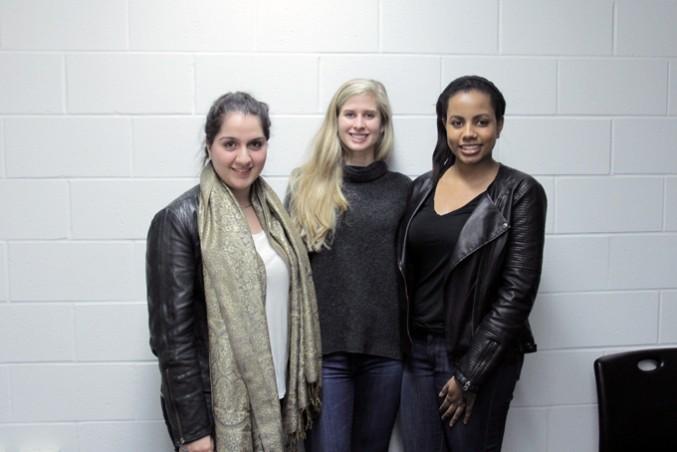By Mikayla Fasullo
A new student group is putting a magnifying glass on the challenges and insecurities undergraduate women in science experience.
Tara Upshaw, third-year biology student and president of Undergraduate Women in Science Ryerson (UWiSR), has been connecting dots from her first day of class. “I was finding when I came into science I lacked confidence in my ability to succeed,” she said. Although academically thriving, Upshaw never felt as if she belonged in science at Ryerson.
Conversing with other women in her program, her feelings became more vocal and it was clear she wasn’t the only one facing this problem. “Women feel like they’re not supported and they’re not expected to succeed academically or intellectually,” Upshaw said.
Upshaw explained the group she wanted to start to Faculty of Science Dean, Imogen Coe, whose been a supportive and encouraging figure for the women.
“I’m hoping the group will help students realize that they’re not alone, that some of the things that they feel are actually very common and that it’s okay” said Coe.
As a former female student studying science, Coe could relate to the insecurities and challenges brought up by the group. “I’ve experienced things like imposter syndrome, a sense of not belonging”, she said. “A sense of not seeing myself reflected in a group or particularly as I moved up the ranks in academic science not seeing enough women sitting at the table in academic leadership”.
The insecurities and challenges are nothing new to women in science — not just at Ryerson but at other universities and in the world of business. “I think the issue was kind of internalized, it wasn’t something that anybody spoke about,”said Lauren Philips, third-year biomedical science student and vice president events with UWiSR.
“The group provides these women with a safe space,” said Nairy Khodabakhshian, a third-year biomedical science student and vice president of UWiSR. “It allows these women to get to know themselves, to self introspect and understand their weaknesses and strengths and applying that to getting to where they want to be in their career”.
The group’s action plan is organized like a tree: with roots, branches, and leaves. “The roots represent interpersonal or communicative base skills that they would learn through workshops,” explains Philips, “A branch represents how we interact with others in a professional setting brought forth through workshops and the leaves would be conferences or personal development days that we would have throughout the year”. With their determined team of 32 and bold plan, the UWiSR are targeting recognition and appreciation.
The group is empowering women beyond the science program. “I think it applies everywhere for women in the professional world and learning how to advocate for yourself in the moment in the face of gender stereotypes,” said Upshaw.












Leave a Reply